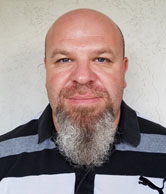SPS Webinar, 29 October 2021: Empirical Wavelets

Upcoming SPS Webinar
Title: Empirical Wavelets
Date: 29 October 2021
Time: 2:00 PM ET (New York time)
Duration: Approximately 1 Hour
Presenters: Dr. Jérôme Gilles
Based on the IEEE Xplore® article: Empirical Wavelet Transform
Published: IEEE Transactions on Signal Processing, May 2013
Download: Original article will be made freely available for download for 48 hours from the day of the webinar, on IEEE Xplore®

About the topic:
Adaptive (i.e., data-driven) methods have become very popular these last decades. Among the existing techniques, the empirical mode decomposition has proven to be very efficient in extracting accurate time-frequency information from non-stationary signals. However, it is a purely algorithmic method and lacks of solid theoretical foundations. To overcome this issue, we propose the construction of adaptive wavelets, called empirical wavelets. Their aim is to decompose a signal into its harmonic modes (i.e., amplitude modulated frequency modulated constituents). To reach this goal, we first detect the position of the wavelet supports in the Fourier domain by analyzing the signal spectrum, and then we build the corresponding wavelet filter bank. The transform is simply obtained by multiplication in the Fourier domain. We extend this idea to the 2D case for image processing by considering different types of classic Fourier partitions (tensor, Littlewood-Paley, curvelets, . . .). Finally, we propose a method, based on the Watershed transform, to create empirical wavelets on completely arbitrary supports. We explore some theoretical properties of the empirical wavelets in the continuous case and illustrate their efficiency in texture segmentation tasks.
About the presenter:

Dr. Jérôme Gilles (J'74) received the M.S. degree in automatisms and signal processing from the Ecole Normale Supérieure of Cachan, France in 1999 and the Ph.D. degree in mathematics from the Ecole Normale Supérieure of Cachan, France in 2006 under the supervision of Prof. Yves Meyer (Gauss Prize 2010, Abel Prize 2017). He defended his “Habilitation à Diriger les Recherches " in 2012 under the mentorship of Prof. Jean-Michel Morel.
He held a scientist position from 2001 to 2010 in the French Ministry of Defense in the Department of Space, Observation, Intelligence and UAVs systems, as an expert in signal and image processing. From 2010 to 2014, he was an Assistant Adjunct Professor in the Department of Mathematics at the University of California, Los Angeles. He moved to the Department of Mathematics and Statistics at San Diego State University in 2014 as an assistant professor and was promoted to associate professor in 2018.
Dr. Gilles’ research interests include applied mathematics for signal/image modeling and analysis, textures analysis, signal/image restoration (neuroscience signal analysis, correction of atmospheric turbulence effects in long range imaging). He also devotes an important part of his time to study mathematical theories such as functional analysis, wavelets, partial differential equations and their applications for signal and image processing.

